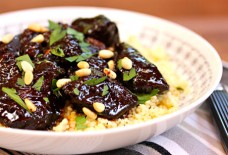National Arab Orchestra Holds its Concert Premier in Atlanta
A sold out audience attended the world premier concert of the National Arab Orchestra at Atlanta’s Symphony Hall Friday night — living up to its billing — “Building Bridges through Music.”
Even Gov. Nathan Deal wrote a letter of welcome to the National Arab Orchestra and the concert attendees that was printed in the evening’s program. “On behalf of the State of Georgia, it is a pleasure to be a part of this special performance,” Deal wrote.
The host of the Atlanta concert was Nue Medical Consulting, a health information technology company based in Lawrenceville. The event helped the National Arab Orchestra in its quest to meet a $100,000 challenge grant from the John S. and James L. Knight Foundation Arts Challenge for an inaugural innovative music program to benefit Detroit’s students.
The participatory concert was partly educational but mostly a multi-cultural experience where audience members were able to enjoy a variety of musical instruments and their unique sounds as well as Arabic love songs full of passion and melancholy melodies.
The origins of the National Arab Orchestra began in 2009 as the Michigan Arab Orchestra. It was first a “takht” — a small chamber music group comprised of ‘oud (Arab lute), qanun (Arab zither), violin, nay (Arab reed flute) and riqq (Arab tambourine).
According to its website, the ensemble has grown to become a full orchestra under the leadership of its founder and music director — Michael Ibrahim.
During the concert, the charisma of Ibrahim was contagious. He played the flute, which he also used as the baton as the conductor of the orchestra. At times he sang and during one song he played the lute — showing all his talents.
The National Arab Orchestra aims to preserve the musical traditions of the Arab world while providing opportunities to bridge social and cultural barriers among different groups in the United States and the world.
When artists were singing Arabic songs, a video screen would provide the English subtitles so the audience could understand the meaning. People in the crowd were encouraged to clap and cheer and become part of the show.
At the same, audience members were able to contribute to the $100,000 challenge campaign by texting during the concert’s musical breaks.
Moose Schieb, who chairs the National Arab Orchestra’s board, is hoping to be able to take the show on the road — both around the country and and internationally.
“We believe that the future of the National Arab Orchestra can be a powerful musical voice and a contributor to our global community,” Moose has said.
Maria Saporta
Saporta Report


